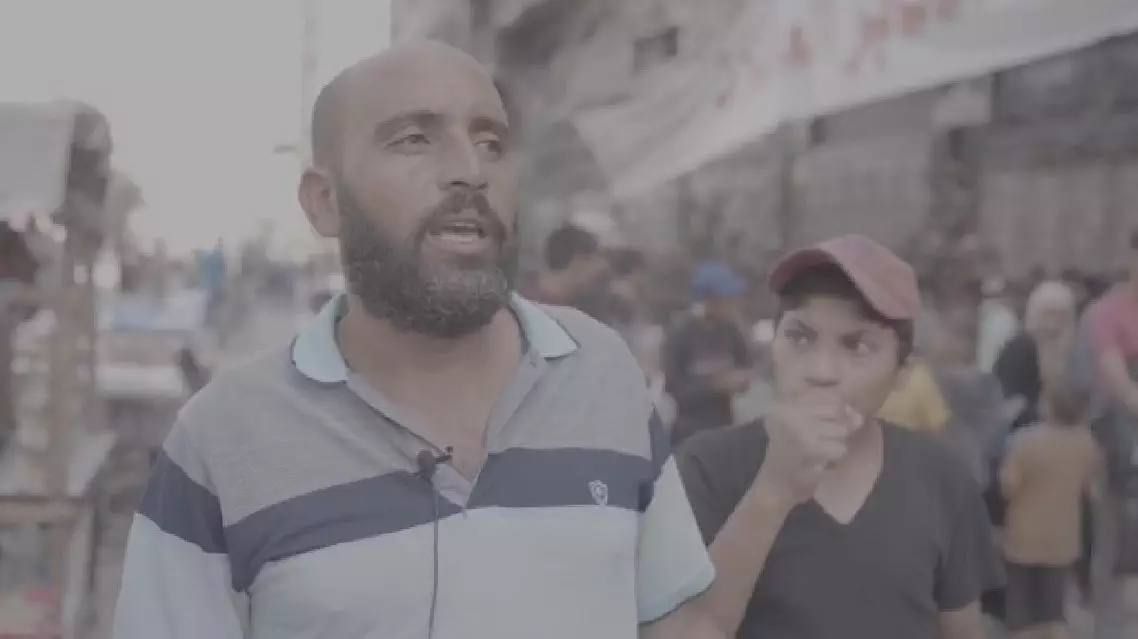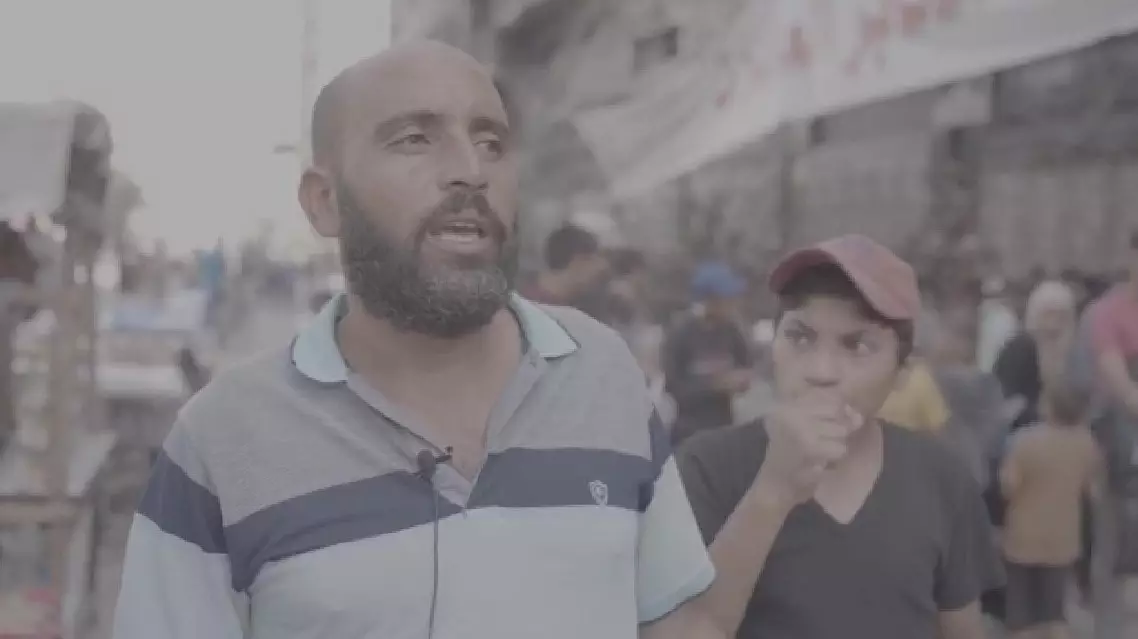A severe hunger crisis continues to afflict the massive displaced population in the war-torn Gaza Strip, as the year-long Israel-Hamas conflict persists and humanitarian access remains largely restricted.
On the World Food Day, which falls annually on Oct 16, Palestinians in the Strip, who have endured a brutal year of conflict, still face a desperate lack of food and are forced to cope with hunger every day.
The Israeli military launched another large-scale assault on northern Gaza on Oct 6, ordering hundreds of thousands of Palestinians to evacuate. Meanwhile, a strict siege and blockade were imposed on the area. According to the United Nations World Food Programme (WFP), the main crossing into northern Gaza has been nearly closed, with no food aid allowed in since Oct 1.
At present, many WFP-supported local bakeries are forced to close due to food shortages. The WFP warns that remaining supplies in northern Gaza are extremely limited and uncertain in duration, especially for local residents who fled sudden attacks by the Israeli military, carrying very little food with them.
"The entire world is calling for an end to hunger, but we're dealing with famine and being hungry every single day, and things are getting worse. We hope things will get better, but we always find ourselves back in famine. More than 10 days ago, the Israeli army took over northern Gaza again, making the famine even worse. We had to leave Beit Hanoun (a city on the northeast edge of the Gaza Strip) and walk to Gaza City with our children, women, and seniors to find shelter," said Walid, a displaced Palestinian in northern Gaza.
Fahd, another displaced man, expressed his anger and helplessness, saying he has survived on canned food for months without any fresh vegetables or meat. With food aid access closed and famine looming, the situation in Gaza is worsening.
"I am suffering from hunger right now. It has been eight months since I last ate a tomato or any other vegetables. I have forgotten their taste. Without vegetables and fruits, I can't even remember if bananas are yellow or red anymore. We only have canned food, and haven't seen any vegetables and meat," said Fahd.
Now, malnutrition is rising sharply among young children and breastfeeding mothers in Gaza, with infants being the most vulnerable victims of the ongoing food crisis.
"Last week, I completed a survey on 600 children and their mothers. Sadly, I found out that 20 percent of the children are mildly malnourished, 10 percent are severely malnourished, and 16 percent are moderately malnourished. It's not just about numbers. We're talking about a childhood disaster here. We're discussing children who can't find food daily, who go to bed hungry and in tears," said Saeed Saleh, medical director of Patient's Friends Hospital in Gaza City.
Alongside the high risk of famine, the Palestinian death toll from ongoing Israeli attacks in Gaza has reached 42,344 since the outbreak of the latest round of Palestinian-Israeli conflict on October 7, 2023, according to a statement from health authorities in the region on Tuesday.

Hunger crisis haunts Gaza's displaced

Hunger crisis haunts Gaza's displaced









